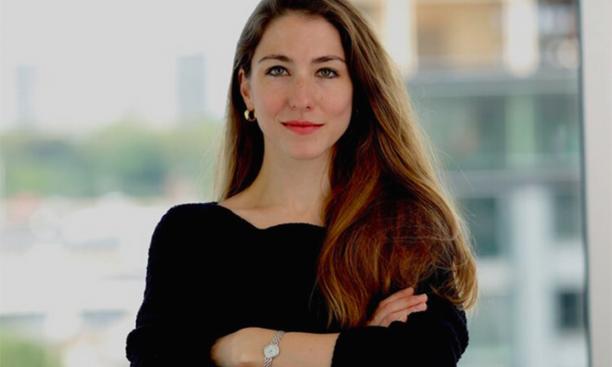
Pilar Castro-Kiltz ’10 is an entrepreneur, business strategist, and dance theater artist who has created a sustainable hybrid career blending the performing arts and business. After majoring in music and earning certificates in theater and dance at Princeton, she earned a Master of Fine Arts from NYU’s Tisch School of the Arts and an MBA from the Wharton School of the University of Pennsylvania.
Castro-Kiltz was the artistic director of the dance theater company Ensemble Dance, which she founded in 2011, and has directed and performed in off-Broadway and Broadway productions. Recognizing a need for consulting services customized for the arts, Castro-Kiltz founded the strategy and marketing firm More Canvas Consulting in 2014, which has expanded to provide management consulting services for industries such as health care, tech, higher education, and legal and financial services.
Castro-Kiltz also founded the Princeton Arts Alumni (PA2), a networking and resource platform serving Princeton alumni in the arts. Now in its eighth year, PA2 offers monthly newsletters, virtual variety shows, and a database of Princeton alumni in over 50 categories of the visual and performing arts.
As an artist, you’ve advised other artists on business plans and nontraditional career paths. What is your key strategy for artists to maintain financial stability?
I think for all individuals — especially artists — diversifying income is key to resisting external market or environmental shocks. COVID gave us a great example of this. Performing artists whose other work was teaching yoga or dance classes lost all their income sources when in-person activities stopped. Ask yourself, “What are the different shocks that could hit my world? Injury, illness, economic downturns, a pandemic? What skills can I build to generate consistent income?”
How do you manage your time, as an artist and business owner, to create all of the art that you want to create?
I struggle with this, like many people. Balancing one’s time outside the university structure is challenging. Somebody said to me, “It takes a great deal of discipline to be a free spirit.” That sums up what’s required to find time to express yourself artistically.
I schedule time on my calendar: 8 a.m. to 10 a.m. is writing time. I invite others to participate; I used to do something called “Soup and Scenes,” where I’d invite people over, cook a big pot of soup, and we’d read scripts. Creating accountability with others and getting feedback was really helpful.
How do you approach your artistic process in a way that fulfills you?
Acknowledging that I have an artistic process is step one. Then there are questions to ask. Does the art need to be lauded/awarded/acknowledged? Does it need to be seen by others, to matter and exist? Is just making it enough? Right now, I’m at a place where it needs to be finished and seen by other people. Just having a script in a drawer is not enough.
How do you build self-care into your artistic practice?
Self-care means ensuring that I’m living a sustainable existence aligned with my mission, and not at risk for burnout. When I’m not playing with my chamber ensemble, not practicing violin and piano, not writing songs or scripts or painting … my work suffers, my personal relationships suffer — I feel empty inside. Since my business card now says “CEO” instead of “Director/Choreographer” or “Artistic Director,” making time for art in my daily life is self-care!
What is your number one business tip for artists?
Remember: You are a business. It’s important to have clear goals and missions. Ask, “How do I get there? What resources do I need?” Everybody is an entrepreneur or a kind of corporation, who has to think about their future growth plan, strategy, exposure to risk. What is your debt level? What is your income source? What are your 3-month, 6-month, 1-year, 3-year plans? Think about ways to use the skills, talents, and credentials you already have, and re-frame them so someone will pay for them. Businesses are yearning for artistry and creative thinking. How can you bring them together to create innovation and solutions?
What is your advice to student-artists at Princeton?
If I had a succinct piece of advice to give students who are artists: The arts can be in your life in many different ways. And it will change, or can change, over time. You won’t be able to do it all, all at once. It does take time to build a career in the arts — or to just build a career, and keep the arts in your life. And really think through how you are going to set up your life so it is sustainable enough to keep the arts in it.
Always be in learning mode, even after graduation. Take initiative. Cultivate new skills, mentors, resources, and solutions. Industries and networks are ever-changing; you may miss opportunities if you believe you have everything figured out.
Change comes in steps and phases. You bring together a disparate set of resources to create new solutions and meet your goals. This is why being an artist is the epitome of entrepreneurship.
Connect with Princeton Arts Alumni. We bring together alumni across disciplines — and across decades — to build a community as vibrant and rich as the one on campus.
Interview conducted and condensed by Anna Allport ’23
